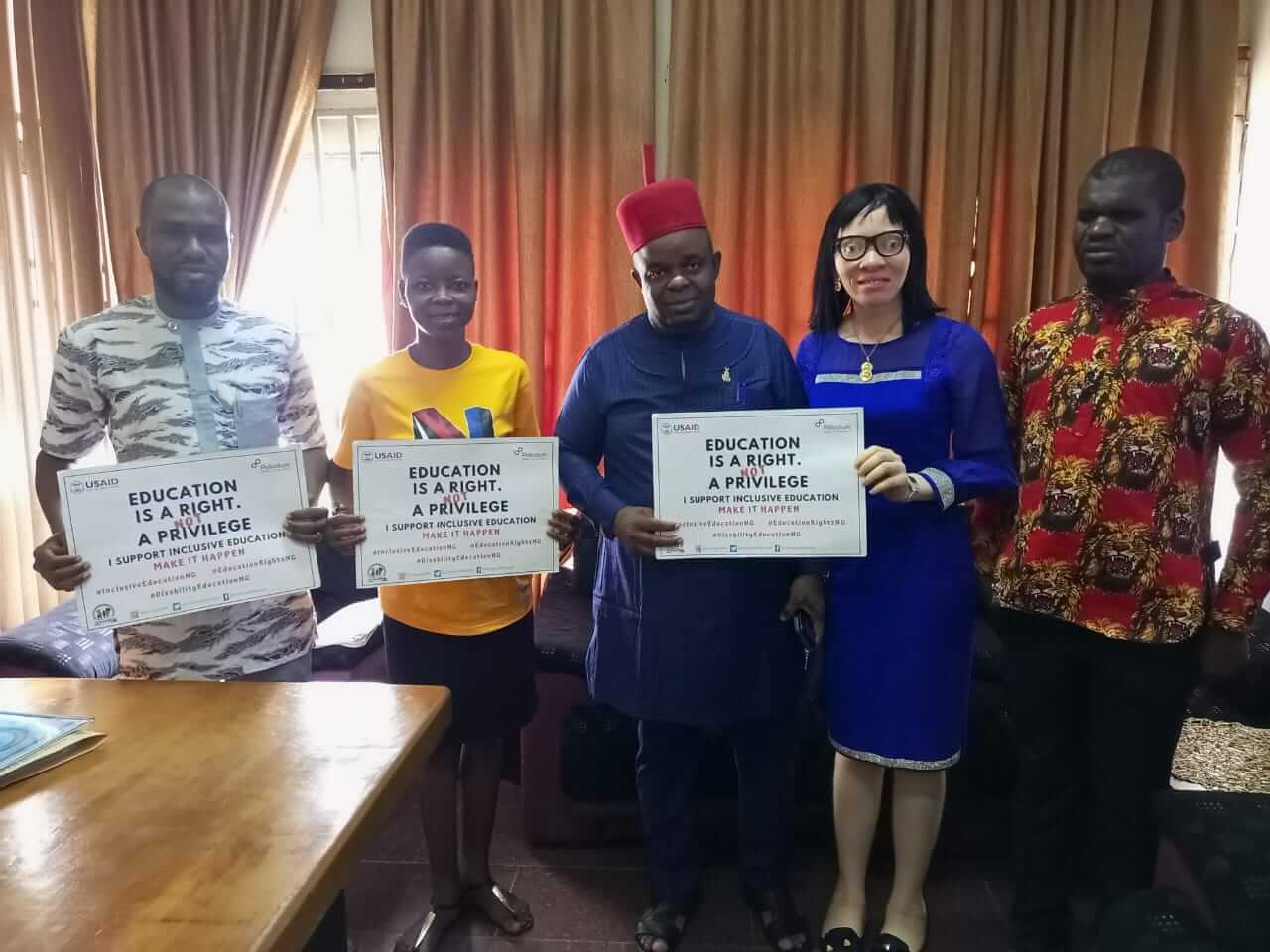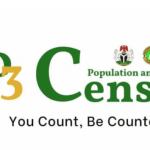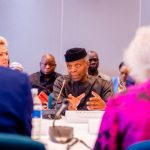The campaign to ensure access to education for members of the disability community in Nigeria is gathering momentum in Anambra State with courtesy visits aimed at securing the buy-in of relevant stakeholders such as politicians, traditional rulers, and religious leaders among others.
The campaign followed the award of a grant to the Anambra State chapter of the Joint National Association of Persons with Disabilities or JONAPWD by the National Secretariat under the Nigeria Strengthening Civic Advocacy and Local Engagement or SCALE project, a five-year intervention funded by the United States Agency for International Development (USAID) and implemented by Palladium and JONAPWD Anambra State.
SCALE is designed to advocate for the implementation of inclusive education in the area as provided for in Article 24 of the UN Convention on the Rights of Persons with Disabilities (UNCRPWD) and Part 5 of the Nigeria Discrimination against Persons with Disabilities (Prohibition) Act, 2018.
The campaign, in the final analysis, will be seen as successful if it strengthens frameworks for persons with disabilities to benefit from any changes in policies, systems, and practices in education, improves the data bank on inclusive education contexts across the country, and increases public support for building awareness and understanding of disability inclusion-related issues in education, including its gender dimensions.
The latest advocacy visit by JONAPWD Anambra State was to Ejike Okechukwu, the member representing Anaocha II Constituency, who also chairs the Education Committee of Anambra State House of Assembly.
According to the Project Officer, Onyekachi Ololo, the visit was “to relate with the broader policy implications of tackling the barriers that persons with disabilities face, draw attention to the result of non-disability responsive policy and regulatory frameworks which influences organizational practices and compliance to inclusivity and to engage with the legislator on ways to strengthen areas of the disability rights law which promote education for persons with disabilities.
“The 5th Assembly introduced the Bill first in 2013, the 6th Assembly reintroduced it and passed it in 2018 and it was assented to by the Governor in same 2018, then the 7th Assembly saw the creation of the Disability Commission in 2022, so we charged the Hon member to sustain the tempo especially as he was re-elected and will be featuring in the incoming 8th Assembly of the state.”
Ololo drew the attention of their host to issues denying PWDs access to education which include: policy gaps, funding, budgeting, and releases, worsened by administrative bottlenecks inhibiting the implementation of the disability rights law and the education components of the law for persons with disabilities.
“We also suggested that he critically look at how to use legislation to get the executive to pay more attention to the law, as well as ensure that PWDs are given their pride of place in their pursuit of education.
“Finally, we pointed out to him that the right to education in the law is not strong due to access to funds and other public biases, and appealed to him to make legislation for disability-friendly public and private institutions with recognition to individuals who are bringing assistive devices,” Ololo concluded.
The lawmaker, who was just recently reelected, committed to sponsoring a bill on inclusive education but requested to be furnished with various issues affecting inclusive education for different clusters of JONAPWD.
“I can make some impact even before this current assembly winds down. But I need you to arm me with adequate information to pursue this worthy course.”
Okechukwu stressed the need for JONAPWD to always follow up on budget provisions made by the government as releases are much more important than getting budgetary allocations. “I throw my door open to you people and other persons with disabilities. I am honestly committed to deepening this relationship.”






